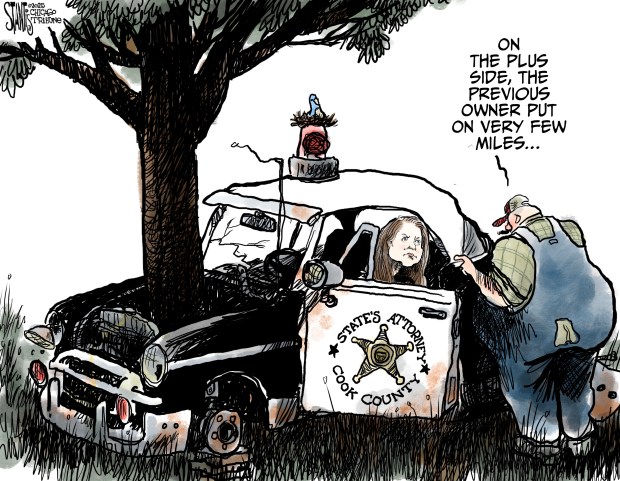People crave stability. When it comes to others, we feel comfortable when we know who they are, what they think and what they represent.
This is particularly important when it comes to politicians. If they want to secure our vote, they surely need to project an unwavering image that doesn’t confound expectation with changes to stance and policy positions. A trustee model of representation relies on an approach in which we know the type of person we are electing and trust that they will look out for our best interests, guided by their conscience in their governing.
If someone changes their mind, does this mean that we can’t trust them? Are they a different person from the one we elected?
This is exactly the criticism being leveled at Vice President Kamala Harris with her view of fracking. People may wonder: If she changes her mind on this, what other positions might she reconsider?
Yet this mindset doesn’t leave any space for people to grow as the world evolves and circumstances change. Does a shift in opinion really mean someone is untrustworthy, or could the elasticity of their thinking be something praiseworthy in itself?
Stanford University psychologist Carol Dweck would encourage us to champion a “growth mindset,” which allows for beliefs to evolve and drives motivation and achievement. Unfortunately, when it comes to politics, we don’t afford politicians the same luxury that we provide ourselves.
In her book “The Politics of Resentment,” political scientist Kathy Cramer argues that “when people vote for a candidate their overarching calculation is not how closely does this person’s stances match my own, but instead, is this person like me?” What we perhaps need to question is whether we more readily forgive the flaws of our friends and neighbors than our politicians. If we want politicians who are like us, then maybe we should apply the same criteria with which we would want to be judged.
Over time, Americans’ attitudes toward elected officials have dramatically changed. A Pew Research Center report earlier this year found that “in 1958, about three-quarters of Americans trusted the federal government to do the right thing almost always or most of the time.” As of this past April, that figure stood at 22%.
How can we rebuild trust in the decision-makers who affect our futures?
First, we need to stop expecting politicians to be supreme beings without flaws. We need real people in politics, not those with bleached resumes lacking in the everyday experiences of the people they represent.
If we continue to place unrealistic expectations on those who hold high office, we will continue to get the kinds of politicians we deserve, not the ones we so desperately need.
I’m not suggesting that we shouldn’t have high standards or fail to hold people to account, but we should appreciate that they won’t always get everything right. And more importantly, we should give them the space to admit when they are wrong and allow them to change their mind.
“Identity is a matter of becoming as well as of being. It belongs to the future as much as to the past,” cultural theorist Stuart Hall said. In this sense, we shouldn’t seek to define people merely by what they’ve said and done but appreciate that they are real people who continue to learn and grow.
Cultivating a healthy democracy relies on an environment with seasons that blow hot and cold — different growing conditions for different crops. When we grow organically, we can never be assured of the final result; we must be flexible to change as the climate shifts. And despite our best attempts, we might accidently use the wrong type of soil, but as good gardeners, we must change our practices in order to help our seedlings thrive.
In this increasingly tumultuous world, as much as we might crave stability and comfort, we must ensure we don’t miss out on choosing leaders whose truth is born out of a desire to keep growing. As we listen to candidates vying for our attention, we should remain flexible in our thinking so as to gain a firmer grasp of the type of person who best deserves our vote.
James Coltella is a freelance writer and strategic communications professional. He recently graduated from the Harvard Kennedy School of Government with a Master of Public Administration. He grew up in the United Kingdom and Italy.
Submit a letter, of no more than 400 words, to the editor here or email letters@chicagotribune.com.



